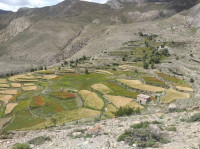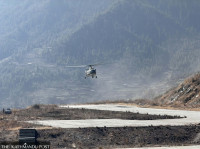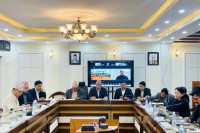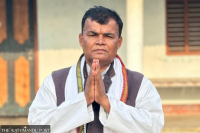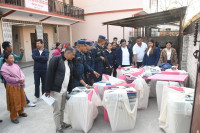National
Panel to probe tampering of ‘cooling off’ period prepares unanimous report
Some members, however, object to the decision to not name ‘some individuals’ while recommending action.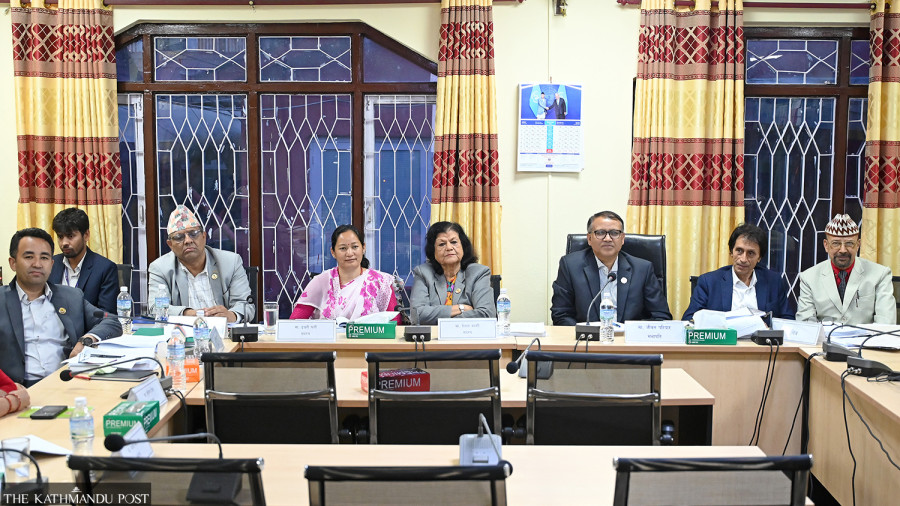
Purushottam Poudel
The special parliamentary committee formed to probe the tampering of the cooling-off period provision in the Federal Civil Service Bill—meant to bar civil servants from political appointments for two years after retirement—has passed the report unanimously.
There is consensus on holding accountable both those directly responsible for nullifying the ‘cooling-off period’ provision and those who played an indirect role in rendering it ineffective, said a committee member.
“We have prepared the report unanimously,” said committee member and CPN-UML lawmaker Narayan Prasad Acharya. However, he declined to provide further details. “The contents will be known once the report is made public,” he said.
Another committee member and Rastriya Swatantra Party lawmaker Ganesh Parajuli said members differed while recommending action against some individuals even as the report was passed unanimously.
“In its recommendation for action against some individuals implicated in the act, it remains silent on some,” Parajuli told the Post.
He, however, refused to name the persons recommended for action and the individuals on whom the report is silent.
The committee, formed on July 7 with a four-point mandate and a three weeks deadline, failed to prepare a report even within the extended one week’s time due to political interests and lack of cooperation from the bureaucracy.
Although the committee’s new deadline passed on Sunday, efforts continued on Monday to prepare a consensus report.
The investigation committee, led by Nepali Congress deputy general secretary Jeevan Pariyar—includes Congress Whip Sushila Thing, and Acharya and Ishwari Gharti from the CPN-UML. The Congress and the UML are coalition partners.
Other members included Madhav Sapkota from the CPN (Maoist Centre), Parajuli from the RSP, and Roshan Karki from the Rastriya Prajatantra Party.
Opposition members on the committee earlier alleged that as the ruling party members held a majority, efforts were made to prepare a report soft on the accused.
According to a probe member, the Congress lawmakers stood against implicating Ramhari Khatiwada, chair of the State Affairs and Good Governance Committee that prepared a report sorting out issues in the bill. Meanwhile, the UML maintained that the chief secretary and other high-ranking officials should not be held accountable for tempering of the agreed provision while forwarding the bill.
Lawmakers from the ruling UML party have registered an amendment to the bill in the National Assembly seeking to remove the ‘cooling-off provision’.
However, the three opposition members on the committee demanded clearly identifying the involvement of both Khatiwada and senior bureaucrats. This difference ultimately delayed the report.
“The report could not be finalised on time because ruling party members were attempting to present it as a clerical error by junior staff while avoiding mention of the responsible political leadership and high-ranking bureaucrats,” said Karki, a probe panellist.
Although the initial plan was to finalise the report on Sunday and submit it to the House of Representatives on Monday, it didn’t happen due to differing opinions among committee members.
Opposition leaders have accused the ruling parties of creating hurdles even in minor issues while drafting the report. They argue that this behaviour further indicates the ruling partners’ vested interest in the cooling-off period controversy. However, leaders from the ruling parties denied such allegations.
“The accusations they made are completely false. There was no obstruction from our side,” said Ishwari Gharti, a UML lawmaker on the committee.
Political interest and non-cooperation from bureaucrats have been blamed as the committee takes long to reach a final conclusion.
The bill’s text, finalised by the committee, was tabled in the lower house’s plenary on June 16 and endorsed by overwhelming support on June 30.
However, no lawmakers noticed the last-minute changes, which altered the bill’s major highlight—the provision of a cooling-off period. Under this provision, government employees can’t be eligible for political appointments for two years after their retirement or resignation.
While discussions were ongoing as the committee sought to wrap up the investigation on Sunday, the members from the Congress and the UML held an hours-long meeting with the chief whips of the two parties.
However, UML Chief Whip Mahesh Bartaula claimed that he did not meet with his party’s lawmakers with an ulterior motive.
“Sunday was the deadline given to the committee, so I met simply to inquire whether there would be enough time to conclude the report. There was no other purpose of that meeting,” Bartaula stated.
But, when members from the ruling parties were out of contact with the opposition party members, they were even accused of attempting to tamper with the cooling-off period provision.
“The provision of cooling-off period was altered not due to a clerical error. It was a deliberate act,” said RSP’s Parajuli.
The panel interrogated at least a hundred people involved in preparing and finalising the bill.
Home Minister Ramesh Lekhak; Minister for Law, Justice and Parliamentary Affairs Ajay Chaurasia, former minister for federal affairs Raj Kumar Gupta, the government’s chief secretary, the chief whips of all the political parties, and members of the House committee faced questions.
Karki stated that although some political figures did arrive at the committee’s office on Sunday to sign the statements recorded by the committee, most senior bureaucrats did not show up.
The committee earlier decided unanimously to put a provision under Clause 82(4) that “a civil servant or any other government employee who resigned or retired from service shall not be eligible for appointment to any constitutional or government position before two years from retirement”.
After incorporating this provision, the previously included clause that barred such individuals from positions except for constitutional or diplomatic appointments or any other made by the government of Nepal was supposed to be removed.
However, as that clause was retained under Clause 82(5a), it drew widespread criticism and serious questions, leading to a committee to investigate the matter.
The committee, led by Pariyar, was tasked with recommending corrective measures, among other things.
Some lawmakers and House committee members accused the Parliament Secretariat, employees from the ministers of law and general administration, and committee chair Khatiwada of colluding to manipulate the bill so that high-ranking civil servants would not come under the cooling-off restriction.
Before this, top bureaucrats also had lobbied against the cooling-off provision.
Their meetings with Prime Minister and CPN-UML chair KP Sharma Oli, Nepali Congress President Sher Bahadur Deuba, Speaker Devraj Ghimire, and National Assembly chair Narayan Prasad Dahal to remove the provision from the bill had not been successful.
The bill becomes law once the House of Representatives and the National Assembly pass it and the President approves it.
But while preparing the probe report, lawmakers from the UML and the other parties were on the same page, said Madhav Sapkota, a Maoist lawmaker on the committee.
Registering amendments to the Federal Civil Service Bill and preparing the probe report are unrelated, said Narayan Prasad Acharya, a UML panellist.
“Our party’s bill amendment proposals have nothing to do with the investigation report writing and the recommendation process,” Acharya said.




 25.42°C Kathmandu
25.42°C Kathmandu
